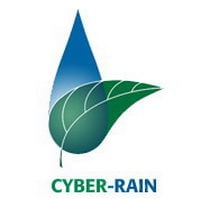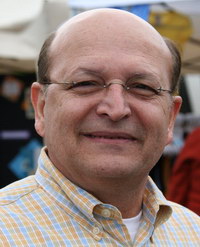Friday, November 2, 2007
Interview with Reza Pourzia, Cyber Rain

For our Friday interview, we thought it would be interesting to profile Cyber Rain (www.cyber-rain.com), a Los Angeles company in the clean technology space which recently raised a small round of funding. Reza Pourzia is founder and CTO of the company, and he told us a little bit more about its "smart" irrigation controllers designed to better control sprinkler systems to conserve water. Reza spoke with Ben Kuo.
What's your background, and what's the idea behind Cyber Rain?

Reza Pourzia: I was always walking down the street and seeing water running off the sidewalks in the morning. It was a problem that had been bothering me. So, I was the VP of engineering at Bizrate, which is now Shopzilla, and I have also worked at Experian Consumer Direct. I architected their new system, which is used to check your credit report online. After that, I went to Edmunds.com, and I have a lot of background in e-commerce. I came across this technology, 802.15.4, also referred to as Zigbee, and I thought, this would be really cool, and you can do something at this price point that could be really compelling. So, I quit my job, and started a company called Showcase Innovations based on wireless mesh networking. We explored several ideas, and decided to come up with a sprinkler controller system. The idea was--we assume everyone will have a PC, and that they will have internet, and let's get the weather forecast from the Internet and adjust the amount of watering needed based on tomorrow's weather forecast.
It's really simple--if it's going to rain, stop the sprinklers; if it's humid today, we reduce it; if it's hot, let's increase it. It was a simple idea, but the challenge was make it simple. There's a lot of technology behind this--mesh networking, dealing with interference with neighbors, not having to deal with MAC addresses and discovering devices--so the biggest accomplishment was to make it such a simple solution that it would hide all these technologies from the user. So we've created a product that assumes users don't know how to set up their Wi-Fi, don't want to worry about encryption, or about entering passwords, by automatically discovering networks and binding them and creating security. Set up is five minutes, and you're up and running; once you set up the initial schedule, you just forget it, and we run behind the scenes and check the weather and adjust the weather system. We shipped our first units in January and February this year; by May, we were able to do an analysis of total savings of users and found they are saving an average of 36 percent on their water bill.
Has it been tough switching from an e-commerce background to one which seems to involve hardware and a physical product?
Reza Pourzia: The hardware was a challenge, but to make a solution like this we had to incorporate a lot of disciplines. There are embedded controllers, wireless mesh newtorking, and we had to use web services to get the weather, create a PC UI--we had a lot of technology that had to be incorporated together. One nice thing about my background is I've had lots of experience with UI, lots of experience doing web services on the Internet. We don't discuss this on our web site, but behind the scenes we have an ASP model where you can use this to detect people's water savings--things that might appeal to a city like Las Vegas, where they have limited watering schedules, and even for programming in our web site days to comply with those restrictions.
This sounds like you are looking at also selling this to municipalities?
Reza Pourzia: Exactly. We look at this as a complete paradigm shift. It's like the iPod versus the Walkman. With the power of the Internet, web services, it opens up huge new things for municipalities. We think it will be a trend--municipalities are hurting for water, and there are two issues they are dealing with: they want to know how much people are using or saving water, and they want to enforce watering based on drought conditions or temporary water shortages. Our system can easily do this automatically.
How's the company funded and backed?
Reza Pourzia: I personally funded this myself for about a year, year and a half. The part that is really expensive was the hardware development. Some of the challenges when you go to the market is not just electronics--it's a hostile environment, you have to deal with things like lightning protection and surges--there's lots of hardware development to make sure they're taken care of. So I started looking around for funding. I was talking with banks, investment bankers, angel funding, and also VCs. I spent five or six months, but the problem was it was taking away from development. I was at a point where I either could look for funding, or do development, and couldn't do both. Then, through a friend of mine I was introduced to Momentum Ventures, the firm which funded us, and we went and made a presentation to Matt Ridenour. They saw the potential of the product immediately, and they came on board, and put in a CEO, and gave us some bridge funding to get to the next level.
How big of an opportunity is this?
Reza Pourzia: They think it's a billion dollar market---because of the timing of it, because of legislation in California, Arizona, Nevada, Florida--now devices have to be smart, and you can't waste water. If you look at our closest competitor they are double the price, and not user installed - you need a professional installer. Plus, they also have a monthly fee. In our case, we have an extremely simple device a user can install, and the price is half the price. We think it's a huge market, and we're in the process of determining different channels, and also just hired a chief marketing officer from the green industry, Judy Guido, who has just come on board. She was chief marketing officer for Valley Crest, and is very familiar with the landscaping industry. We're extremely excited because of the timing of it.